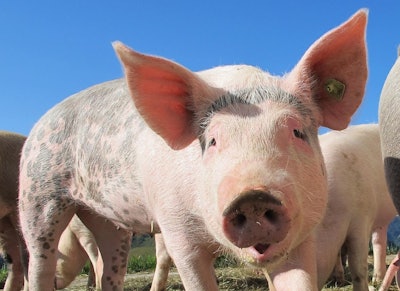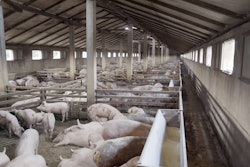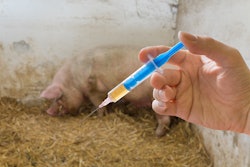
A new method for concentrating oral fluid samples could lead to the development of new rapid test kits for African swine fever (ASF), according to a recent paper from Kyoto University.
Scientists found that a technique typically used to concentrate norovirus from oysters increased the detection of African swine fever virus in oral fluid samples, improving the researchers' ability to detect the virus 100-fold over a conventional method used as a reference in the study.
Tests for the ASF virus typically require the collection of blood samples, because the virus is present in larger concentrations in the blood than in other bodily fluids. The new method described in Japan uses 10 ml of fluid per test to ensure better detection of the virus and avoid false negatives.
Most comparable tests use 50-200 microliters of oral fluids, but 10 ml is still small enough that it can be easily obtained. Researchers collected the samples needed for the study by allowing infected pigs in Vietnam to chew ropes placed in their pens, Kyoto University professor Wataru Yamazaki said.
While the test itself is inexpensive, the concentration process does take about an hour and must still be completed within a laboratory, Yamazaki said. The cost for this laboratory time could vary depending on the local cost of labor, which could limit the accessibility of the test.
So, Yamazaki said his research team is now working to improve their concentration technique with the aim of getting the time down from an hour to about 10-15 minutes per test. They also hope to develop and commercialize test kits based on the technique that could be used on-farm to get rapid diagnostic results.
Meanwhile, Yamazaki said his team will be using the new concentration method in collaboration with other researchers in Vietnam and the Philippines to screen pigs for ASF.
Although vaccine development should remain the top research priority, Yamazaki said access to faster and more accurate diagnostic tools should help prevent the virus from spreading to new regions by allowing authorities to quickly respond to new outbreaks.
















